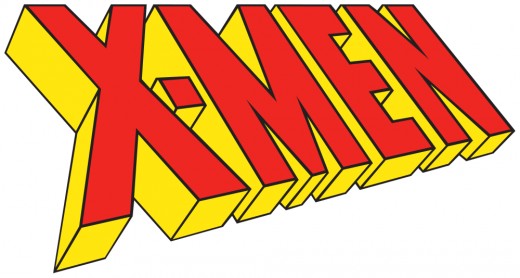X-Men Trilogy Review - Differences Between Movies And Comics
The X-Men are a group of mutant superheroes introduced by Marvel Comics in 1963. Led by Professor Charles Xavier, the group originally consisted of five members:
-
Jean Grey or Marvel Girl, later known as Phoenix
-
Scott Summers or Cyclops
-
Hank McCoy or Beast
-
Warren Worthington or Angel
-
Bobby Drake or Iceman
The X-Men comics would introduce new characters as the years went by. Characters such as Wolverine and Storm are part of the second generation of X-Men. They came much later in 1975.
The X-Men comics became very popular and gathered a large number of fans. To capitalize on this popularity, several movies were made based on the X-Men characters. These are:
-
X-Men
-
X2
-
X-Men: The Last Stand
While the movies are loosely based on the comics with lots of similarities, there are notable differences that stand out to fans who are familiar with the comics.
Who are mutants?
A mutant is a human being, who carries the mutant gene. This X-Gene usually gives an otherwise normal human being additional abilities or powers that other human beings do not have. These abilities can vary significantly, but may include:
-
The ability to fly.
-
Telekinesis or the ability to move objects remotely.
-
Telepathy or the ability to read other people's thoughts.
-
Many other abilities that are numerous to mention.
Not all mutants are powerful or strong. Some are simply deformed or weak. However, all mutants are different from human beings in some way. In some cases, the difference is not always so apparent from the outside.
While the original X-Men were all mutants, later years saw the addition of non-mutant characters to the team. Their powers were derived through some other means, such as through magic or advanced technology.

What's the biggest difference between the X-Men comics and movies?
There are were lots of differences, but the one that stood out in my opinion was the role of Wolverine. Wolverine is a very popular character in the comics, although how popular relative to other X-Men characters is a matter of debate.
In the movies, Wolverine's role is really quite elevated. He is the most important character and the undisputed leader. It isn't that apparent in the beginning, but it becomes quite apparent as time goes by. Gradually, Wolverine takes on more and more of a prominent role. By the third movie it clearly shows. Especially with the demise of both Charles Xavier and Cyclops.
In the comics, the leader of the X-Men when they were out in the field was historically Cyclops and to a lesser extent Storm. In the movies, Cyclops never really gets going and his role is taken over by Wolverine. Cyclops gets relegated to a minor role and is eventually presumably killed. I found this remarkable considering he is one of the most important X-Men characters and the role he has played as one of the founding members of the X-Men from the very beginning.
Wolverine's role as a take charge leader is surprising, because the impression I have of him is that he is someone who prefers to go at it alone. In the comics, he got into a conflict with Cyclops due to wolverine doing things that were detrimental to the team as a whole. Wolverine in the comics is more of a loose cannon and not much of a leader.
Wolverine's abilities have also been enhanced compared to the comics. While the other characters in the movies are less or about as powerful in the comics, Wolverine is much more powerful. In the comics, he has as accelerated healing ability. However, it only works if the wounds are not too excessive.
In the movies, his healing ability makes him pretty much invincible. For example, towards the end of the third movie, he is repeatedly blasted by disintegrator rays from Phoenix. Yet, he is able to continue going forward without too much difficulty.
When Wolverine was hit by similar beams in the comics, it proved fatal. This happened in Days of Future Past, when Wolverine is thrown at a Sentinel by Colossus. Unfortunately, the Sentinel is faster and manages to hit Wolverine first. This results in only his skeleton remaining, revealing the limits of his healing ability. This is not the case in the movies.
In the comics, there is no way Wolverine would be able to stand up against Dark Phoenix. Wolverine is still very powerful, but his abilities are just not at the same level as those of Dark Phoenix and other characters like her. They're Omega level mutants or beyond, which is not the case with Wolverine.

Other notable differences between the X-men movies and comics
There are other notable differences that appear throughout the movies and are worth mentioning:
-
In the comics, the Juggernaut is not a mutant, but someone who is given the magical powers of the Crimson Cyttorak. In the movies, he is taken out by disabling his powers and simply knocking him out. I thought this was simply too easy, considering how difficult it is to defeat the Juggernaut as any fan of the comics should know, even with the combined powers of all the X-Men.
-
In the comics, Professor Charles Xavier is perhaps the most powerful telepath on Earth. Yet in the movies, it is possible for Jason Stryker to brainwash him. This should not be possible considering how powerful Charles Xavier is and the nature of his telepathic abilities.
-
In the movies, Jean Grey is able to move an entire airplane with its passengers. But in the third movie, for some reason, she doesn't attempt or is unable to move Wolverine when he tries to approach her. Nor does she attempt to fly as she's able to do. Dark Phoenix has very powerful telekinetic abilities and should have no problem moving someone like Wolverine. Something that Magneto was able to do. This didn't make sense to me.
Overall, as someone who is fairly familiar with the comics and an X-Men fan, the movies were a must see. The first two X-Men movies in the trilogy were a joy to watch I have to say. The third movie probably less so.








